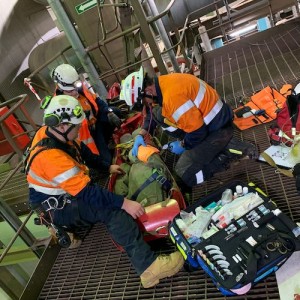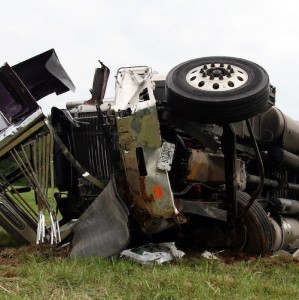
Do you watch the news and wish you could help when hearing about worksite incidents? Does a career saving lives interest you?
A job as an Emergency Services Officer (ESO) could be perfect for you.
What is an ESO?
The role of an ESO can vary, depending on the worksite. However, generally speaking, an ESO is responsible for:
- Responding to incidents and emergencies, and
- Ensuring the workers at your worksite are ready to respond to incidents and emergencies.
What sort of tasks do ESOs do?
ESO’s responsibilities vary depending on the industry, size of the worksite, your qualifications and the number of workers on site.
Typical tasks may include, but aren’t limited to:
- Responding to emergency situations on site
- Administering first aid
- Training workers at your worksite
- Liaising with emergency services during an incident
- Designing emergency response procedures
- Purchasing and maintaining safety, rescue and first aid equipment
- Completing inspections and audits
- Assisting with incident investigations.
How do you become an ESO?
ESOs are responsible for managing the response to a variety of emergency situations. They therefore require a broad range of skills in the areas of first aid, fire, rescue, training and security.
There is no ‘one size fits all’ qualification for ESOs, as different worksites have different requirements.
However, these are some of the qualifications and training that may be required:
- Certificate III in Emergency Response and Rescue
- Provide First Aid
- Operate Breathing Apparatus
- Confined Space Rescue
- HAZMAT Response
- Road Crash Rescue
- Vertical Rescue
- Emergency Response Planning
- Mining Induction (Standard 11 Compliant)
- Certificate IV in Training and Assessment.
What industries do ESOs work in?
ESOs are employed in many varying industries, including but not limited to:
- Mining
- Construction
- Oil and gas
- Defence
- Aviation
- Manufacturing
- Power and energy.
Not sure where to start?
Have a look at the ads on Seek for ESOs and they’ll give you an idea of the qualifications different worksites require. Also feel free to call us on 1300 990 810 if you’d like to discuss any of the above courses.
This is a picture of Pinnacle Safety and Training team members carrying out a rescue rehearsal at a power station.
Related Articles

How to choose an online course
The coronavirus pandemic has seen the popularity of online learning increase dramatically.Almost overnight, educators have been transforming traditional face-to-face courses to online formats to meet ...

Understanding Chain of Responsibility
Heavy vehicle safety is no longer the sole responsibility of drivers and heavy vehicle owners and operators.On 1 October 2018, the Heavy Vehicle National Law (HVNL) was amended so that all parties in ...

